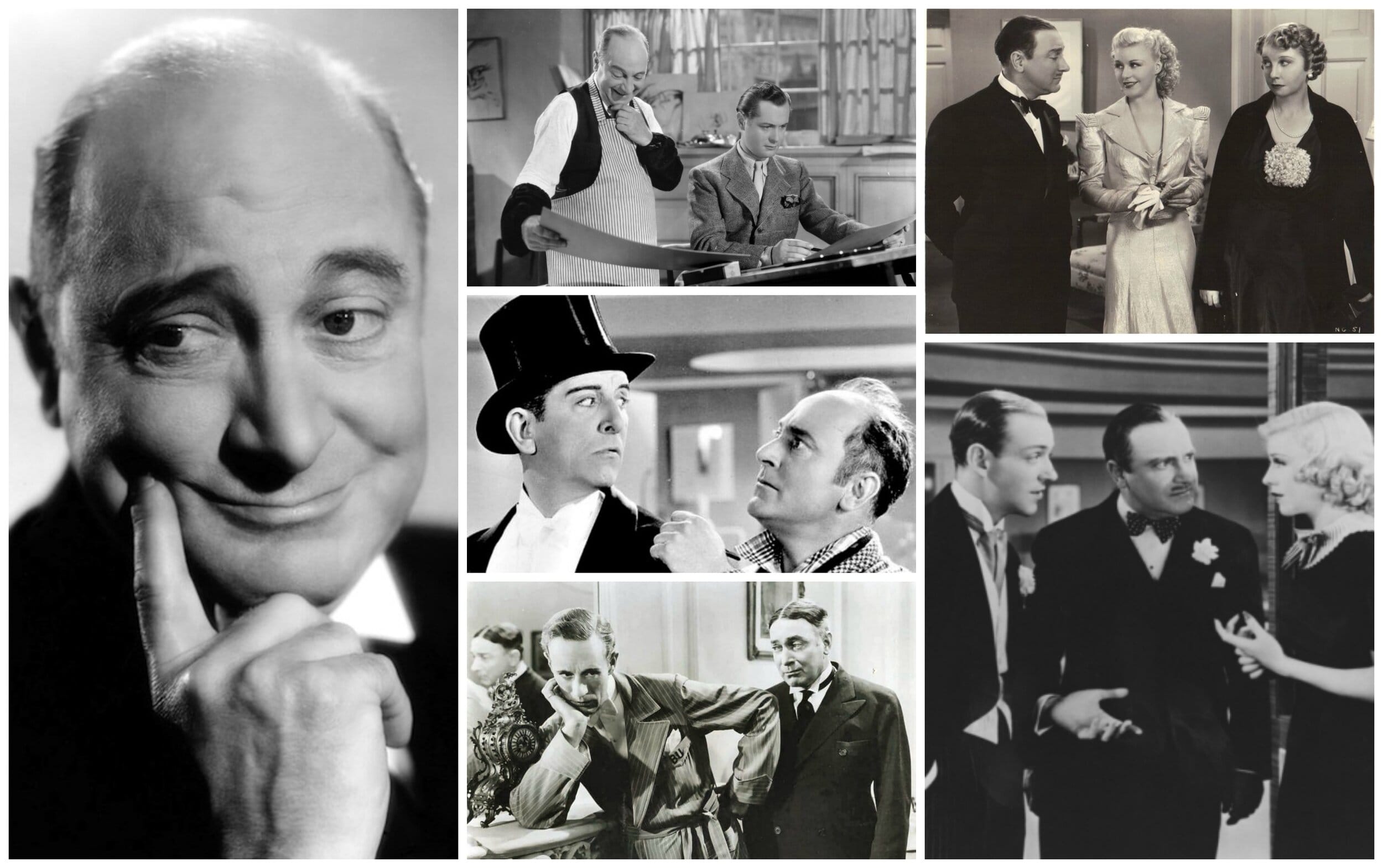Eric Blore, a name that may not immediately spring to mind, yet a face and voice instantly recognizable to generations of film enthusiasts. He was the quintessential character actor, the master of the raised eyebrow and the stammered apology, a comedian who could steal a scene with a mere glance. This article explores the fascinating life and career of this beloved performer, tracing his unlikely journey from insurance agent to Hollywood icon.
From Finchley to Footlights: Blore’s Early Life
Born in Finchley, Middlesex, England on December 23, 1887, Eric Blore’s early life hardly foreshadowed a career in entertainment. Educated at Mills School, Finchley, he embarked on a conventional path, working as an insurance agent. It is intriguing to imagine the future comedic genius calmly discussing policies and premiums. Yet, beneath the veneer of the ordinary, a passion for performance simmered. This passion ignited during a tour in Australia with “The Merrymakers” concert party in 1908. This experience likely served as a catalyst, inspiring Blore to abandon the world of insurance and embrace the unpredictable allure of the stage. He made his stage debut that same year in the musical comedy “The Girl from Kays” at the Spa Theatre in Bridlington. This marked not just a beginning, but a transformation.
Returning to England, Blore quickly established himself in London’s vibrant West End. He became a fixture in revues, musical comedies, and even straight plays, demonstrating a surprising versatility. He wasn’t simply a comedian; he was an actor capable of inhabiting a range of characters, honing the skills that would later define his screen persona. He even wrote sketches and performed in variety shows, further showcasing his multifaceted talent. While learning French, you might want to improve your french vocabulary with conjugation tables for “entendre” at our entendre conjugation page.
Broadway Beckons, and Hollywood Follows
By the 1930s, Blore’s reputation had transcended the Atlantic. He made his Broadway debut, captivating New York audiences with the same charm that had won over London theatergoers. This American success paved the way for his inevitable arrival in Hollywood. His last London stage appearance was in 1933, marking the end of one chapter and the beginning of another. In Hollywood, he swiftly found his niche: the comedic butler, valet, or waiter. He became the go-to actor for these roles, imbuing them with a distinctive blend of flustered competence and understated wit. He wasn’t merely playing a type; he was elevating it, transforming the stock character of the butler into a comedic archetype. This is evident in films like Top Hat (1935), where he played the unflappable Bates, and The Gay Divorcee (1934) where his portrayal of Lord Worthing added a layer of delightful absurdity to the proceedings. He even lent his voice to the irrepressible Mr. Toad in Disney’s The Adventures of Ichabod and Mr. Toad (1949). Master the nuances of elapsed time by practicing our wide range of elapsed time worksheets to sharpen your time management skills.
The Master of Mannerisms: Blore’s Enduring Appeal
What was the secret to Blore’s enduring appeal? He possessed an uncanny ability to convey volumes with a raised eyebrow, a stammered word, or a perfectly timed pause. His comedic style was subtle, relying on nuanced expressions and impeccable timing rather than broad slapstick. While often playing characters bound by the social conventions of the time, his performances transcend any particular era. The perpetually bewildered yet ultimately resourceful butler, struggling to maintain decorum amidst the chaos of his employers’ lives, is a figure that continues to resonate with audiences today.
Blore’s filmmography includes a string of classic Hollywood films, solidifying his place in cinematic history. Shall We Dance (1937), It’s Love I’m After (1937), and The Lady Eve (1941) showcase his range within his established comedic persona. Films like The Ex-Mrs. Bradford (1936) and Submarine Base (1943) suggest a versatility that might have been further explored had he not been so closely associated with the butler role.
Beyond the Footlights: A Glimpse into Blore’s Personal Life
While his on-screen persona was often marked by comedic fluster, Blore’s personal life was marked by both joy and sorrow. He was married twice, first to Violet Winter, who tragically passed away in 1919, and later to Clara Blore. Blore himself passed away in Hollywood on March 2, 1959, at the age of 71, leaving behind a legacy of laughter.
A Lasting Legacy of Laughter
Eric Blore may not be a household name, but his contributions to the Golden Age of Hollywood are undeniable. He was a master of his craft, a character actor who brought depth and humor to even the smallest roles. Although research into early film actors is ongoing and our understanding of their careers is constantly evolving, Blore’s impact on comedic cinema remains clear. His performances, preserved on film, continue to delight audiences, a testament to the enduring power of subtle wit and impeccable comedic timing.
| Film | Role | Year |
|---|---|---|
| Top Hat | Bates | 1935 |
| The Gay Divorcee | Lord Worthing | 1934 |
| Shall We Dance | Cecil | 1937 |
| It’s Love I’m After | Digges | 1937 |
| The Lady Eve | Sir Alfred | 1941 |
- Discover Long Black Pepper: Flavor & Health Benefits - April 25, 2025
- Shocking Twists: The Grownup Review: Unreliable Narration - April 25, 2025
- A Quiet Place Book vs Movie: A Deep Dive - April 25, 2025
















